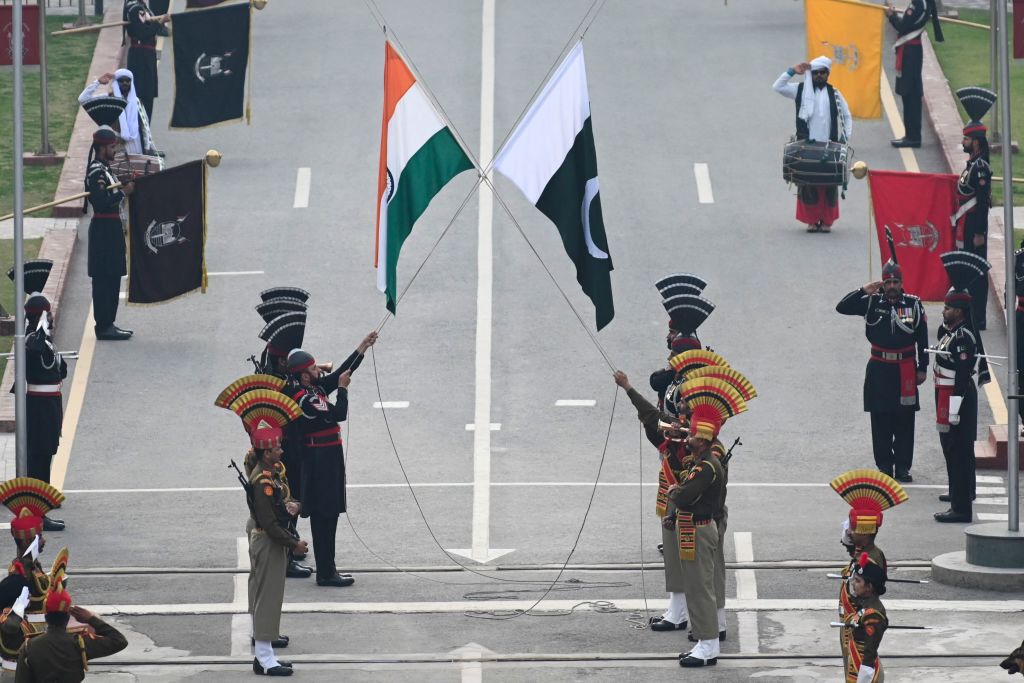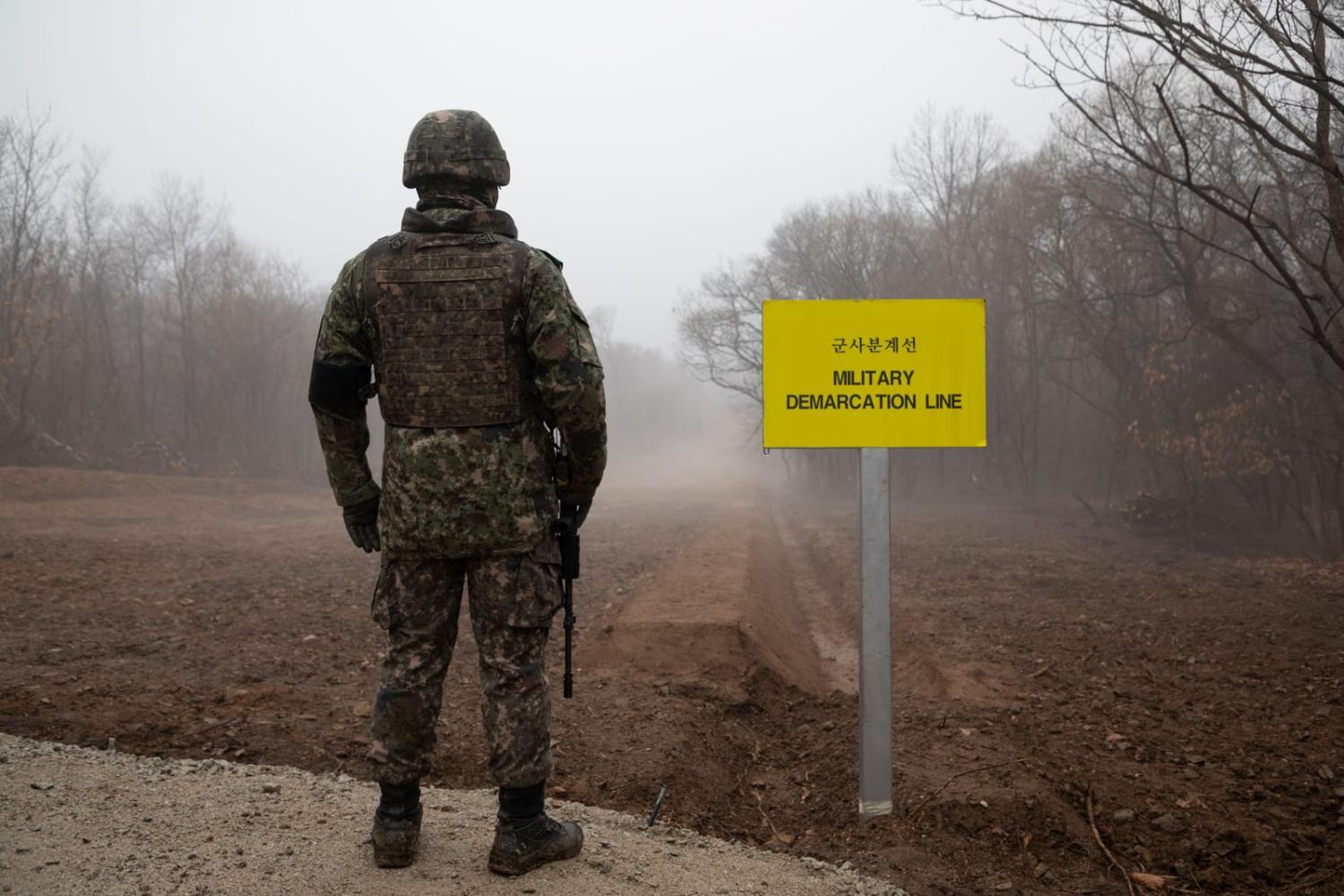During a summer break, The Interpreter will feature selected articles each day from throughout the past year. Normal publishing will resume 15 January, 2024. This article first appeared on 7 March, 2023.
When visiting the demilitarised zone between the Koreas, there is the option to have your own North Korean defector as a tour guide. Tasteless? Or a good way to find employment for those who struggle to settle into South Korean society?
It might make you wonder why people want to visit.
And when I say people, I put myself in that category. I’ve looked over the Golan Heights from the Jordan border. I’ve walked the decks of a decommissioned warship and visited US Indo-Pacific Command.
Apparently there are enough of us out there that some countries, including India, are looking at promoting their “defence tourism” – visiting the sorts of places in the world where the news of war or dislocation doesn’t feel quite so remote.
So what’s the appeal?
First, there’s the sense of being at a place where the border really matters. This is something that one doesn’t often get in Australia, apart from during Covid times. There are places where life is genuinely different depending which side of a line you end up on. This is very clear in the DMZ, where life for North Koreans and South Koreans is poles apart, famously illustrated by a photo of the peninsula at night. The World Food Program estimates that 40 per cent of North Koreans are malnourished. It’s like a controlled experiment on a massive scale.
I’ve had the same feeling seeing plaques marking the wall that enclosed the Warsaw Ghetto and visiting a checkpoint on what used to be the Berlin Wall. What I think we’re responding to is the massive contrast focused on what is, in the end, a human-created line. A counterpoint to this is travelling to a place where there aren’t borders as such – for me, Antarctica. It makes you realise how arbitrary territorial lines are.

Second, there’s the frisson of experiencing a place that marks a turning point in history and reminds that things could easily have turned out differently. The Korean War could have resulted in a single communist Korea (as it looked in August 1950), a single Western Korea (as it looked in September 1950), or the stalemate that occurred.
Last year, I went to Kinmen to visit the battleground where the fortunes of the Chinese civil war turned. The Nationalists had been pushed out of the mainland, battle by battle, and ended up on a tiny offshore island where a decisive battle took place. If the Nationalists had lost, the Communists would have continued their advance and there would be no Taiwan. Standing on that beach is a reminder that if things had happened differently, we would live in a different world.
There are a limited number of geographic locations that bring this sense of contingency to the surface. For example, there’s a fascinating alternative history in which French explorers claim Australia rather than British ones – but where do you go to reflect on that? The Sydney suburb of La Perouse? By contrast, I felt it in Mongolia under a 40 metre statue of Genghis Khan, thinking about how history changed when he turned his horse’s head.
Third, this type of tourism often takes us to places of trauma. The Korean War killed four million people and displaced millions more. In the DMZ, a stone altar for holiday rituals reminds of the ongoing pain of being sundered from relatives and ancestors in the North and the impact across generations.
The place I’ve felt trauma most strongly is Auschwitz. I imagine it’s the same in Cambodia or Rwanda. Tragedy and death imbue a place with a sense of the preciousness and precariousness of life.
This is where the greatest danger of such tourism lies. If not done sensitively, it runs the risk of sensationalising or normalising conflict. Like remembrance ceremonies, visits should be a solemn witnessing. Visitors should not minimise or trivialise the human suffering that conflict brings.
At a time of great risk, reminding ourselves of contingency and of the fragility of peace can help us commit to avoid future tragedy. It reminds why we should be working to preserve what security we have – and the immense stakes of getting it wrong.
Melissa Conley Tyler visited Korea as a guest of the Asia-Pacific Leadership Network (APLN) and European Leadership Network (ELN) to speak at a conference on “Strategic risks and the impacts on the non-proliferation regime”

